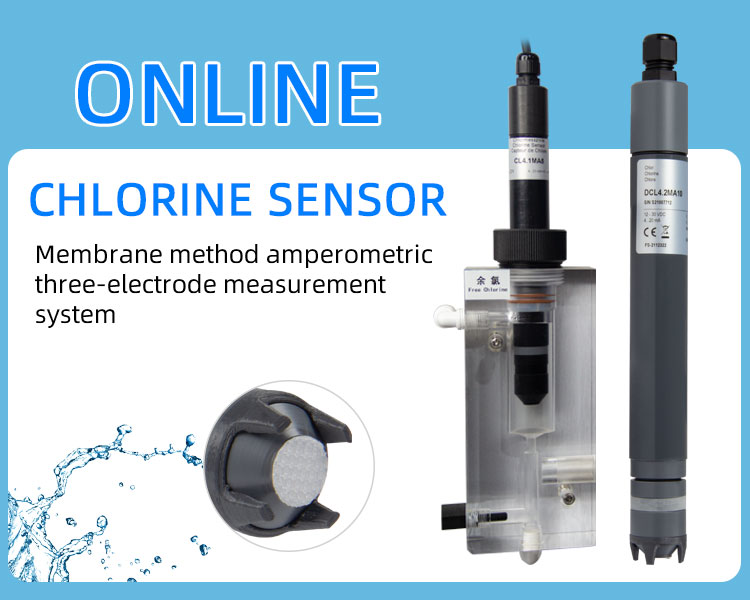Overview
Chlorine sensors, also referred to as chlorine probes, are sophisticated water quality instruments designed to measure various chlorine contents in water. Daruifuno offers a comprehensive range of chlorine sensors, including total chlorine sensors, residual chlorine sensors, and free chlorine sensors, tailored to meet diverse water quality monitoring needs.

Chlorine: The Essential Element in Water Treatment
Definition of Chlorine: Chlorine (Cl) is a chemical element known for its strong oxidizing properties. It is widely utilized in water treatment due to its effectiveness as a disinfectant.
Importance in Water Quality: Chlorine and its compounds, such as sodium hypochlorite, are crucial in eliminating harmful bacteria, microorganisms, and organic matter from water. Residual chlorine, the effective chlorine remaining after chlorination, plays a vital role in maintaining water purity and safety.
Types of Chlorine: Residual chlorine can be further classified into combined residual chlorine and free residual chlorine. Total residual chlorine measures the total amount of chlorine in a water sample, encompassing both free and combined chlorine.
Advanced Chlorine Sensors by Daruifuno
High Accuracy and Real-time Monitoring
Technical Innovation: Daruifuno's online chlorine sensors utilize a membrane-covered amperometric system, enabling real-time measurement of chlorine content in water with high accuracy.
Working Principle: The system allows chlorine in the water to react with a sensitive element inside the sensor, generating a measurable electrical signal. By analyzing this signal, the sensor determines the chlorine content of the water.
Output Modes: The chlorine sensors offer output modes of 4-20mA or RS485, ensuring compatibility with a wide range of control systems and monitoring devices.
Compact Design and Easy Maintenance
Structural Features: The chlorine probe boasts a compact design, making it easy to install and maintain. A matching flow cell is provided to enhance measurement accuracy.
Replaceable Membrane Cover: The membrane cover of the chlorine electrode can be replaced, extending the sensor's lifespan and reducing maintenance costs.
Multiple Measuring Ranges: Daruifuno offers multiple measuring ranges to cater to different water quality requirements, including 0~2ppm, 0~5ppm, 0~10ppm, 0~100ppm, and 0~200ppm.
Ensuring Water Safety and Quality
Excess Chlorine Risks: Excessive chlorine levels can have adverse effects on human health. Monitoring chlorine levels is crucial to ensure the safety of drinking water, swimming pool water, and other water bodies.
Precision and Reliability: Daruifuno's chlorine sensors and probes are designed for precision and reliability, providing powerful performance in various water quality monitoring scenarios.
Customer Support: As a trusted partner in water quality analysis, Daruifuno is committed to excellence and innovation, offering cutting-edge solutions to meet customers' ever-changing needs.
Conclusion
Daruifuno's chlorine sensors and probes are the ultimate solution for precise and reliable water quality monitoring. With their advanced features, compact design, and multiple measuring ranges, they cater to diverse water quality requirements. Contact Daruifuno today to learn more about our products and how they can support you in achieving precise and reliable water quality monitoring.
Chlorine Sensor,Chlorine Probe,Free Chlorine Sensor,Total chlorine Sensor
Suzhou Delfino Environmental Technology Co., Ltd. , https://www.daruifuno.com